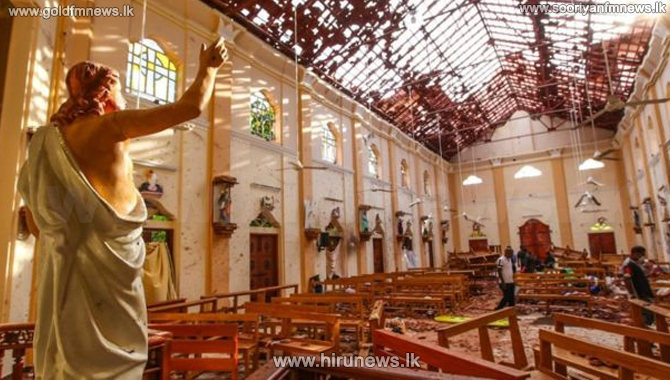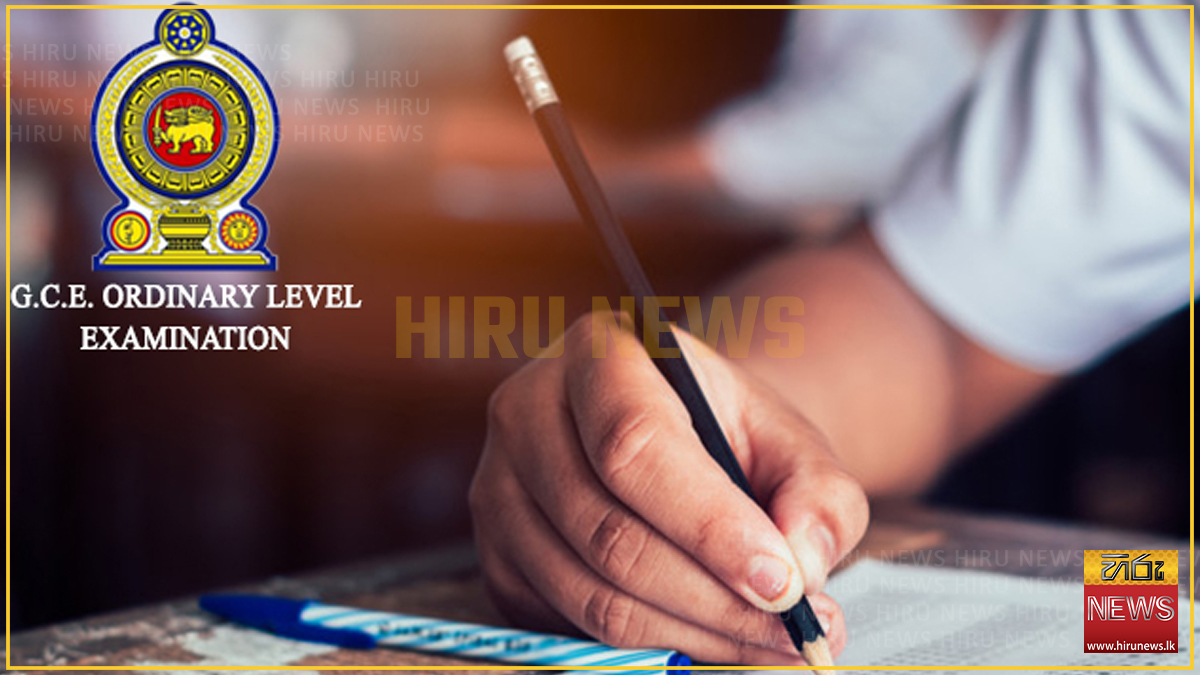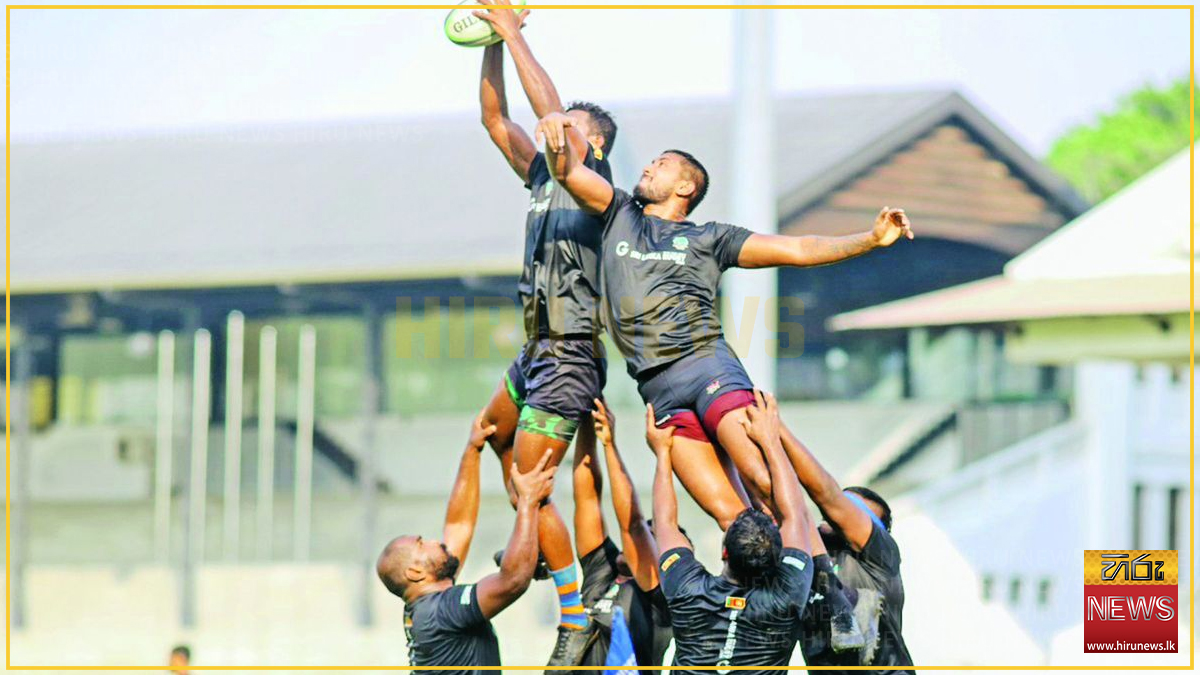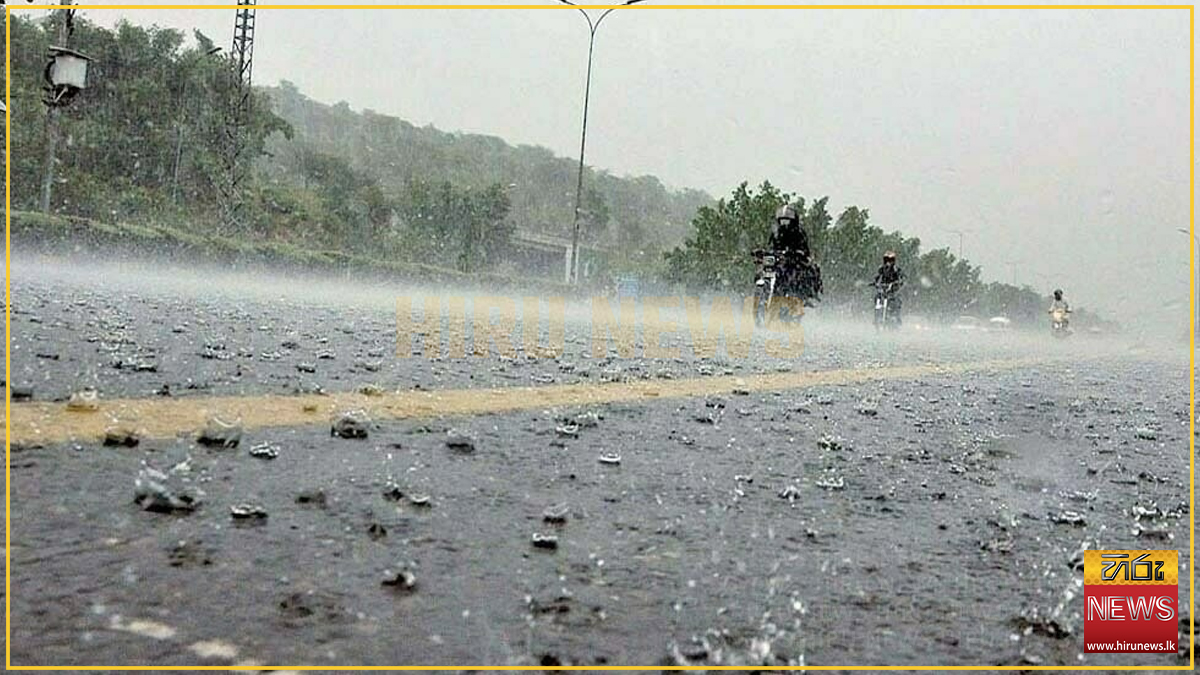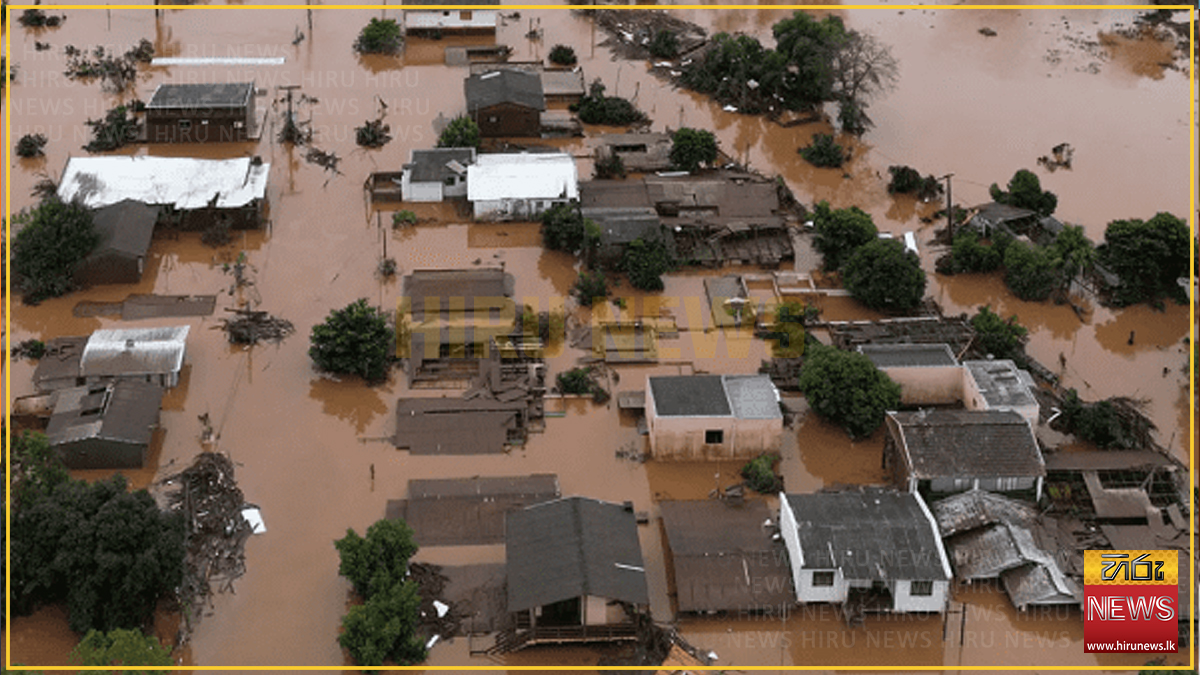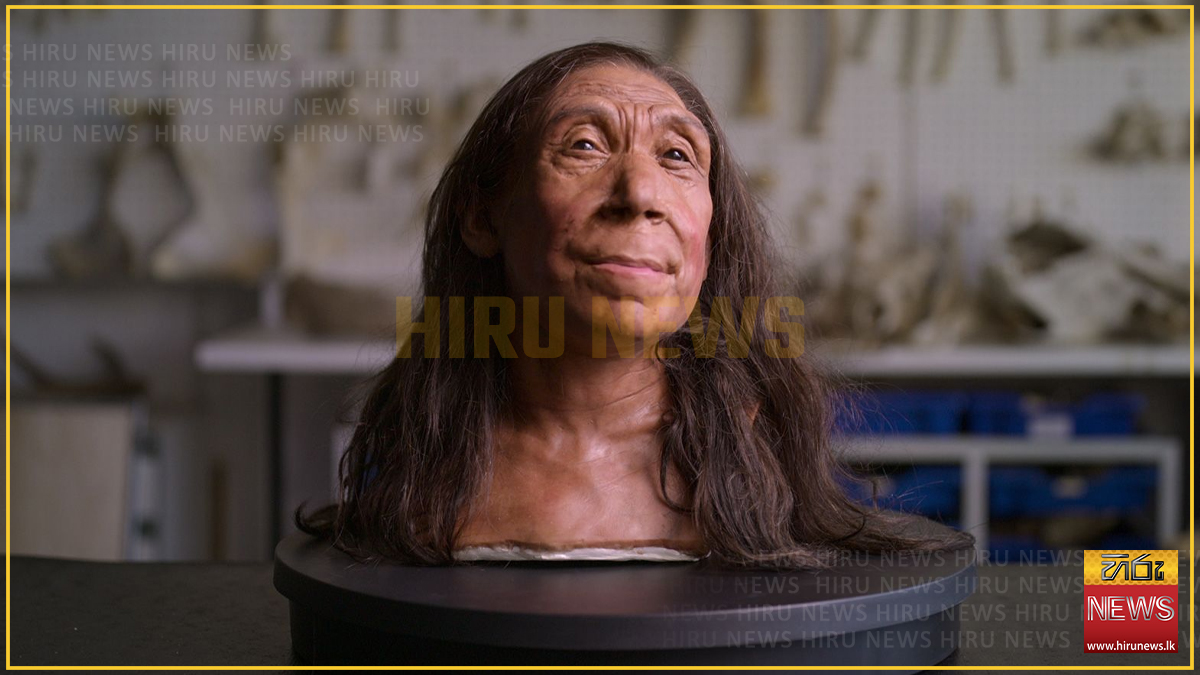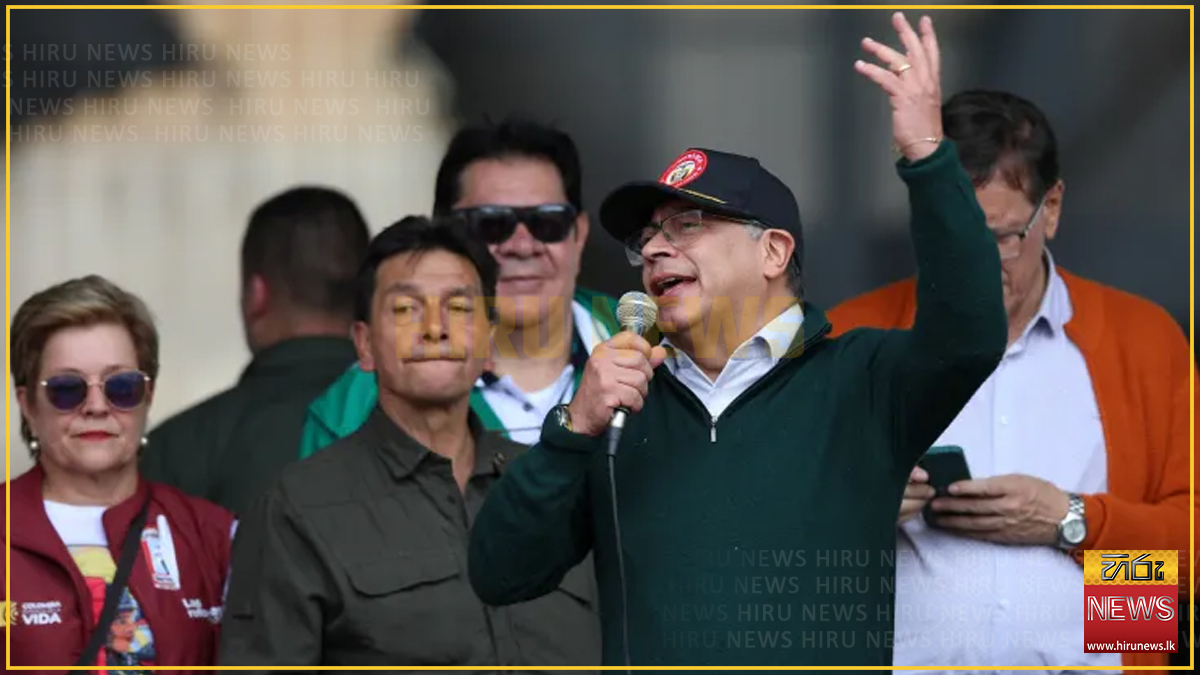Today marks the 3rd year since the Easter Sunday tragedy.
Nine suicide bombers detonated their devices in six locations around the country on Easter Sunday last year.
Reports of the explosions first came in at about 08:45 on 21 April.
Three blasts were at churches: in the Kochchikade district of Colombo; in Negombo, to the north of the capital; and in the eastern city of Batticaloa. The churches were packed with worshippers celebrating Easter.
The other three blasts were at three luxury hotels in the capital - the Shangri-La, Kingsbury and Cinnamon Grand.
After those initial blasts, two other explosions were reported as police searched for the suspects. One was in Dehiwala in southern Colombo, and another one near the Colombo district of Dematagoda.
Later on Easter Sunday 2019, an improvised device was found and defused close to the country's main airport, near Colombo.
The following day, another explosion occurred on a street near a church in Colombo. Police were attempting to defuse devices in a vehicle used by the attackers when it suddenly blew up.
According to police sources, the attackers had planned an explosion at a fourth hotel but it failed.
According to a report by a parliamentary committee which investigated the bombings, the final death toll was 269 (excluding the attackers). The death toll had climbed to 359 in the days after the attacks, but it was later revised down by the government which blamed a calculation error.
Special religious ceremonies
Special religious ceremonies are taking place today under the patronage of the Archbishop of Colombo, His Eminence Malcolm Cardinal Ranjith, in remembrance of the victims of the massacre.
The main commemoration will be held today at St. Anthony's Church, Kochchikade, Colombo, one of the churches that was attacked.
His Eminence Archbishop Malcolm Cardinal Ranjith, Vatican Ambassador to Sri Lanka, Bishops, members of the Maha Sangha and family members of the victims of the terrorist attack are scheduled to attend the event.
After the candlelight vigil and the ringing of the church bells, a special service will be held under the patronage of the Cardinal.
Another commemoration will be held at St. Sebastian's Church, Katuwapitiya and another at Zion Church, Batticaloa.
JUSTICE?
The Catholic Church in Sri Lanka is still awaiting answers from the country’s authorities on the real organizers of the Easter Sunday bombings nearly 3 years ago. The suicide terrorist attacks on 3 churches and 3 hotels on 19 April 2019 killed 269 people and injured more than 500. Cardinal Malcolm Ranjith raised the issue at a press conference organized last week by the Pontifical Foundation Aid to the Church in Need International at its headquarters in Königstein, Germany.
The cardinal has been reiterating his doubts that the Easter Sunday blasts were just “the product of a group of misguided youths bent on terrorism.” “It was very well organized and coordinated; there were bombs in seven places in 15 minutes, although one of the bombers did not set off his explosives,” the cardinal said at the virtual press conference on 14 March.
Collusion between authorities
Several commissions and inquiries were announced to try to get to the bottom of this tragedy and hold to account those responsible. Although some of these reports have been kept away from the public and from Church leaders, what has emerged is damning towards the authorities.
The Archbishop of Colombo, two of whose churches were bombed, demands clarity about possible collusion between authorities, including government figures and information services, and the terrorists. He said the Parliament Select Committee report makes recommendations against the former president, former inspector general of police, former defence secretary, former chief of intelligence and other top-level officials, for not having prevented the attacks.
Authorities wanted the attacks
The 74-year-old cardinal pointed out that they knew beforehand from the information they had gathered and also from warnings given by the Indian intelligence services, but they did nothing. On the contrary, the cardinal said the government seemed to have done its best to prevent the arrest of the attackers. “There are indications that the authorities wanted the attacks to be carried out,” Cardinal Ranjith pointed out.
He spoke about “a sense of frustration” among the people over unanswered questions.
"Why is it that those who were recommended for prosecution are not being prosecuted by the legal authorities? There are some areas indicated in the Parliament Committee report for further investigation, but they are not being investigated, why?”
Cardinal Ranjith said, “The committee makes a very serious finding in terms of the status of the state intelligence apparatus, where intelligence information known to a few was not shared with relevant parties.”
“It also observes that further investigations will be needed to understand whether those with vested interests did not act on intelligence so as to create chaos and instil fear and uncertainty in the lead up to the presidential election to be held later that same year”, the cardinal said, citing from the executive summary of the report.
Pain of victims
Cardinal Ranjith spoke about the pain of the families of the dead and the many survivors who still bear the scars, both physical and emotional, of the attacks.
“A man who lost his wife committed suicide three months ago, leaving his three daughters orphans. Another man who lost his wife and three children was living with his mother-in-law, but he had to leave and he went and slept in the cemetery, where his family is buried. Another woman was a dance teacher, but the explosion left her bedridden. She has a small child, meanwhile, her husband left her. The suffering she is going through is tremendous.”
He told reporters he explained to the Pope that he will not rest in his pursuit of justice and truth. “The Pope has been a great source of inspiration and hope for us. He has always told me to move ahead, struggle with the people to get justice for them. That is the challenge I have,” the cardinal said.
Earlier in March, he briefed Michelle Bachelet, the United Nations High Commissioner for Human Rights in Geneva, Switzerland, on the developments in his country. He also addressed the Human Rights Council where he raised the issue of the flawed investigation into the bombings.
“Help us to create an atmosphere where our questions will be answered by the authorities. We do not want to degrade our country, but we want to make sure the lives of innocent people are not played with by politics”, Cardinal Ranjit told the press conference in Königstein.
Nine suicide bombers detonated their devices in six locations around the country on Easter Sunday last year.
Reports of the explosions first came in at about 08:45 on 21 April.
Three blasts were at churches: in the Kochchikade district of Colombo; in Negombo, to the north of the capital; and in the eastern city of Batticaloa. The churches were packed with worshippers celebrating Easter.
The other three blasts were at three luxury hotels in the capital - the Shangri-La, Kingsbury and Cinnamon Grand.
After those initial blasts, two other explosions were reported as police searched for the suspects. One was in Dehiwala in southern Colombo, and another one near the Colombo district of Dematagoda.
Later on Easter Sunday 2019, an improvised device was found and defused close to the country's main airport, near Colombo.
The following day, another explosion occurred on a street near a church in Colombo. Police were attempting to defuse devices in a vehicle used by the attackers when it suddenly blew up.
According to police sources, the attackers had planned an explosion at a fourth hotel but it failed.
According to a report by a parliamentary committee which investigated the bombings, the final death toll was 269 (excluding the attackers). The death toll had climbed to 359 in the days after the attacks, but it was later revised down by the government which blamed a calculation error.
Special religious ceremonies
Special religious ceremonies are taking place today under the patronage of the Archbishop of Colombo, His Eminence Malcolm Cardinal Ranjith, in remembrance of the victims of the massacre.
The main commemoration will be held today at St. Anthony's Church, Kochchikade, Colombo, one of the churches that was attacked.
His Eminence Archbishop Malcolm Cardinal Ranjith, Vatican Ambassador to Sri Lanka, Bishops, members of the Maha Sangha and family members of the victims of the terrorist attack are scheduled to attend the event.
After the candlelight vigil and the ringing of the church bells, a special service will be held under the patronage of the Cardinal.
Another commemoration will be held at St. Sebastian's Church, Katuwapitiya and another at Zion Church, Batticaloa.
JUSTICE?
The Catholic Church in Sri Lanka is still awaiting answers from the country’s authorities on the real organizers of the Easter Sunday bombings nearly 3 years ago. The suicide terrorist attacks on 3 churches and 3 hotels on 19 April 2019 killed 269 people and injured more than 500. Cardinal Malcolm Ranjith raised the issue at a press conference organized last week by the Pontifical Foundation Aid to the Church in Need International at its headquarters in Königstein, Germany.
The cardinal has been reiterating his doubts that the Easter Sunday blasts were just “the product of a group of misguided youths bent on terrorism.” “It was very well organized and coordinated; there were bombs in seven places in 15 minutes, although one of the bombers did not set off his explosives,” the cardinal said at the virtual press conference on 14 March.
Collusion between authorities
Several commissions and inquiries were announced to try to get to the bottom of this tragedy and hold to account those responsible. Although some of these reports have been kept away from the public and from Church leaders, what has emerged is damning towards the authorities.
The Archbishop of Colombo, two of whose churches were bombed, demands clarity about possible collusion between authorities, including government figures and information services, and the terrorists. He said the Parliament Select Committee report makes recommendations against the former president, former inspector general of police, former defence secretary, former chief of intelligence and other top-level officials, for not having prevented the attacks.
Authorities wanted the attacks
The 74-year-old cardinal pointed out that they knew beforehand from the information they had gathered and also from warnings given by the Indian intelligence services, but they did nothing. On the contrary, the cardinal said the government seemed to have done its best to prevent the arrest of the attackers. “There are indications that the authorities wanted the attacks to be carried out,” Cardinal Ranjith pointed out.
He spoke about “a sense of frustration” among the people over unanswered questions.
"Why is it that those who were recommended for prosecution are not being prosecuted by the legal authorities? There are some areas indicated in the Parliament Committee report for further investigation, but they are not being investigated, why?”
Cardinal Ranjith said, “The committee makes a very serious finding in terms of the status of the state intelligence apparatus, where intelligence information known to a few was not shared with relevant parties.”
“It also observes that further investigations will be needed to understand whether those with vested interests did not act on intelligence so as to create chaos and instil fear and uncertainty in the lead up to the presidential election to be held later that same year”, the cardinal said, citing from the executive summary of the report.
Pain of victims
Cardinal Ranjith spoke about the pain of the families of the dead and the many survivors who still bear the scars, both physical and emotional, of the attacks.
“A man who lost his wife committed suicide three months ago, leaving his three daughters orphans. Another man who lost his wife and three children was living with his mother-in-law, but he had to leave and he went and slept in the cemetery, where his family is buried. Another woman was a dance teacher, but the explosion left her bedridden. She has a small child, meanwhile, her husband left her. The suffering she is going through is tremendous.”
He told reporters he explained to the Pope that he will not rest in his pursuit of justice and truth. “The Pope has been a great source of inspiration and hope for us. He has always told me to move ahead, struggle with the people to get justice for them. That is the challenge I have,” the cardinal said.
Earlier in March, he briefed Michelle Bachelet, the United Nations High Commissioner for Human Rights in Geneva, Switzerland, on the developments in his country. He also addressed the Human Rights Council where he raised the issue of the flawed investigation into the bombings.
“Help us to create an atmosphere where our questions will be answered by the authorities. We do not want to degrade our country, but we want to make sure the lives of innocent people are not played with by politics”, Cardinal Ranjit told the press conference in Königstein.
Follow US




Most Viewed Stories
